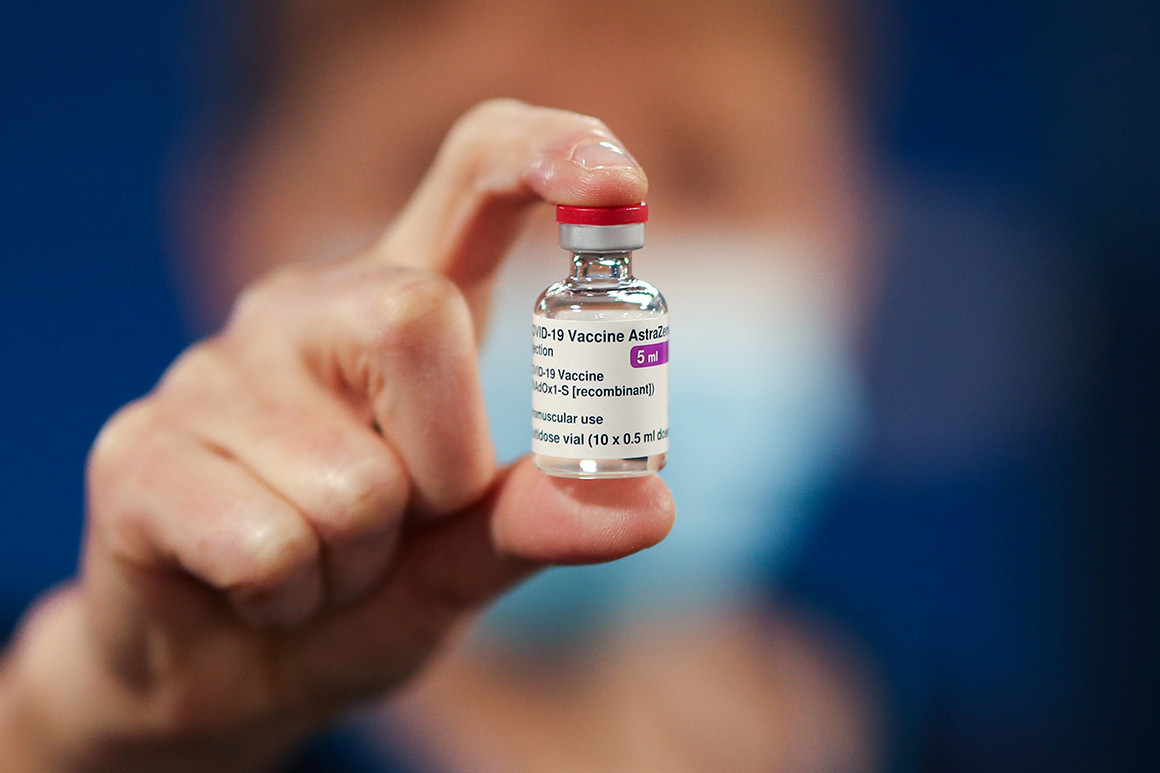AstraZeneca has admitted for the first time in court documents that its Covid vaccine can cause a rare side effect, in an apparent about-turn that could pave the way for a multi-million pound legal payout, according to British media reports.
The pharmaceutical giant is being sued in a class action over claims that its vaccine, developed with the University of Oxford, caused death and serious injury in dozens of cases.
Lawyers argue the vaccine produced a side effect which has had a devastating effect on a small number of families.
The first case was lodged last year by Jamie Scott, a father of two, who was left with a permanent brain injury after developing a blood clot and a bleed on the brain that has prevented him from working after he received the vaccine in April 2021. The hospital called his wife three times to tell her that her husband was going to die.
AstraZeneca is contesting the claims but has accepted, in a legal document submitted to the High Court in February, that its Covid vaccine “can, in very rare cases, cause TTS”.
TTS – which stands for Thrombosis with Thrombocytopenia Syndrome – causes people to have blood clots and a low blood platelet count.
Fifty-one cases have been lodged in the High Court, with victims and grieving relatives seeking damages estimated to be worth up to £100 million.
AstraZeneca’s admission – made in a legal defence to Mr Scott’s High Court claim – follows intense legal wrangling. It could lead to payouts if the drug firm accepts that the vaccine was the cause of serious illness and death in specific legal cases. The Government has pledged to underwrite AstraZeneca’s legal bills.
In a letter of response sent in May 2023, AstraZeneca told lawyers for Mr Scott that “we do not accept that TTS is caused by the vaccine at a generic level”.
But in the legal document submitted to the High Court in February, AstraZeneca said: “It is admitted that the AZ vaccine can, in very rare cases, cause TTS. The causal mechanism is not known.
“Further, TTS can also occur in the absence of the AZ vaccine (or any vaccine). Causation in any individual case will be a matter for expert evidence.”
Lawyers argue that the AstraZeneca-Oxford vaccine is “defective” and that its efficacy has been “vastly overstated” – claims AstraZeneca strongly denies.
Scientists first identified a link between the vaccine and a new illness called vaccine-induced immune thrombocytopenia and thrombosis (VITT) as early as March 2021, shortly after the Covid-19 vaccine rollout began.
Lawyers for the claimants argue that VITT is a subset of TTS, although AstraZeneca does not appear to recognise the term.
Kate Scott, Mr Scott’s wife, told the Telegraph: “The medical world has acknowledged for a long time that VITT was caused by the vaccine. It’s only AstraZeneca who have questioned whether Jamie’s condition was caused by the jab.
“It’s taken three years for this admission to come. It’s progress, but we would like to see more from them and the Government. It’s time for things to move more quickly.“
I hope their admission means we will be able to sort this out sooner rather than later. We need an apology, fair compensation for our family and other families who have been affected. We have the truth on our side, and we are not going to give up.”
Sarah Moore, a partner at law firm Leigh Day, who is bringing the legal claims, said: “It has taken AstraZeneca a year to formally admit that their vaccine can cause the devastating blood clots, when this fact has been widely accepted by the clinical community since the end of 2021.
“In that context, regrettably it seems that AZ, the Government and their lawyers are more keen to play strategic games and run up legal fees than to engage seriously with the devastating impact that their AZ vaccine has had upon our clients’ lives.”
In a statement AstraZeneca said: “Our sympathy goes out to anyone who has lost loved ones or reported health problems. Patient safety is our highest priority, and regulatory authorities have clear and stringent standards to ensure the safe use of all medicines, including vaccines.
“From the body of evidence in clinical trials and real-world data, the AstraZeneca-Oxford vaccine has continuously been shown to have an acceptable safety profile and regulators around the world consistently state that the benefits of vaccination outweigh the risks of extremely rare potential side effects.”
In March 2021, Uganda received 864,000 doses of the AstraZeneca COVID-19 vaccine, shipped via the COVAX facility. It later received an additional 2.5 million AstraZeneca Vaccine





